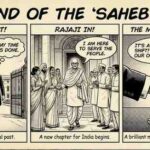Religion, often viewed as a set of static traditions and rituals, gains a dynamic and enriching layer through the integration of philosophical inquiry. Philosophy not only deepens our understanding of these traditions but also challenges us to re-evaluate and enrich our practices, ensuring that religion remains a vibrant, living tradition that evolves with our growing knowledge and understanding. This article explores how philosophy breathes life into religious practices, enhancing their depth and relevance.
Philosophy’s Role in Enriching Religious Practices
Philosophy offers tools for critical thinking and deeper understanding, allowing us to explore the profound questions at the heart of religious practices.
Expanding Interpretations
Philosophy encourages us to look beyond literal interpretations and consider the symbolic meanings behind religious rituals and stories. This approach can transform a routine practice into a rich, contemplative experience that reinforces core values and ethics.
- Example: In Christianity, the practice of Communion can be seen not just as a ritual remembrance of Christ but as a philosophical invitation to reflect on themes of sacrifice, community, and renewal.
Ethical Reflection
Philosophy injects a rigorous ethical framework into religion, prompting adherents to think critically about the implications of their beliefs and actions. It challenges followers to practice what they preach by aligning their actions with their ethical beliefs.
- Example: Buddhist philosophy emphasizes the principle of non-harm (Ahimsa) which extends beyond human interactions to include all living beings, influencing dietary choices and lifestyle practices among followers.
Addressing Modern Challenges
By applying philosophical reasoning, religious traditions can address contemporary issues such as social justice, environmental concerns, and global ethics. Philosophy helps adapt ancient teachings to modern contexts, making them more applicable and actionable today.
- Example: Islamic teachings on stewardship of the earth are reinterpreted through environmental philosophy to promote conservation efforts within Muslim communities.
The Interplay Between Philosophy and Religion
Mutual Enrichment
While religion provides a rich tapestry of traditions and community, philosophy offers analytical tools that enhance understanding and application. Together, they enrich each other, ensuring that religious practices are not only maintained but are continually revitalized and relevant.
Cultural Adaptation
Philosophy plays a critical role in how religious practices adapt to new cultural contexts without losing their core identities. It allows for a thoughtful reinterpretation that respects tradition while embracing change.
Intellectual and Spiritual Growth
The integration of philosophy into religion promotes both intellectual and spiritual growth, encouraging a holistic development where faith and reason coexist harmoniously.
Conclusion: Philosophy as the Catalyst for a Living Tradition
The fusion of philosophy and religion creates a dynamic interplay that keeps religious traditions alive and relevant in the modern world. By engaging with philosophical inquiry, we can ensure that our religious practices continue to grow, adapt, and resonate deeply with a diverse, ever-changing global community. This relationship not only preserves but invigorates religious practices, making them more meaningful and impactful in people’s lives.




























